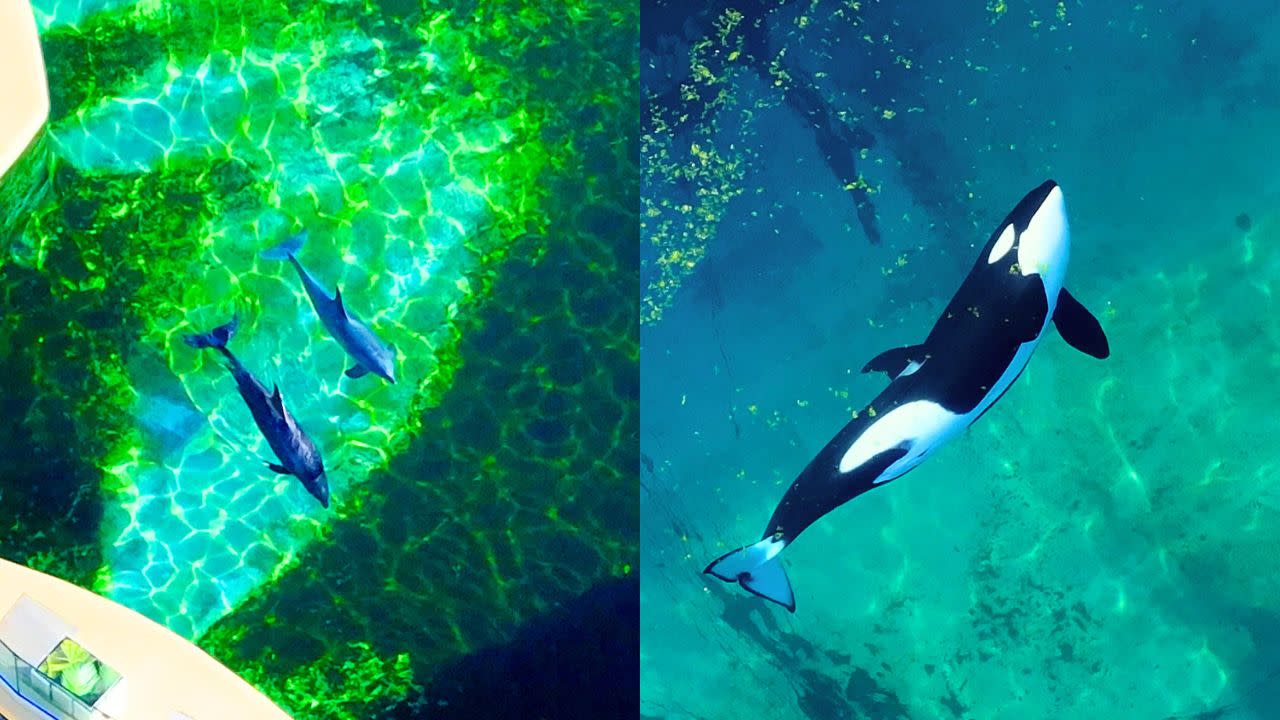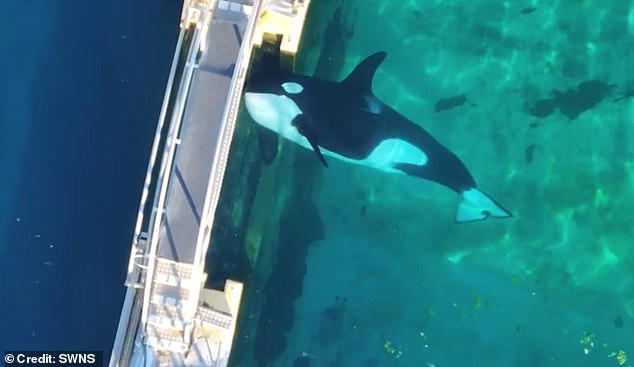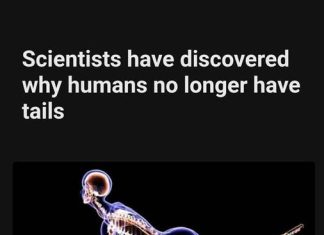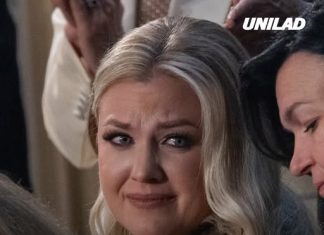In May 2025, drone footage unveiled a harrowing scene at Marineland Antibes, a marine park near Cannes, France. The country’s last two captive orcas, Wikie and her son Keijo, were found languishing in algae-infested tanks months after the park’s closure in January. The footage, released by animal rights group TideBreakers, showed the orcas confined in deteriorating conditions, highlighting the urgency of their situation.
The Aftermath of Closure
Marineland Antibes ceased operations following France’s 2021 ban on dolphin and whale shows. Despite the park’s closure, Wikie, 23, and Keijo, 11, remained in their enclosures, along with 12 dolphins. The orcas, both born in captivity, have never experienced life in the wild, making their current predicament even more tragic.

Failed Relocation Efforts
Efforts to relocate the orcas have faced numerous obstacles. Proposals to move them to marine facilities in Japan and Spain were rejected due to concerns over space and suitability. The French government also blocked a plan to transfer the orcas to a sanctuary in Nova Scotia, Canada, citing potential health risks associated with the move.
A Sanctuary in Nova Scotia: A Glimmer of Hope
The Whale Sanctuary Project (WSP) in Nova Scotia has emerged as a potential refuge for Wikie and Keijo. The sanctuary offers a netted-off ocean environment designed to provide a more natural habitat for captive marine mammals. Lori Marino, president of WSP, emphasized the sanctuary’s readiness and the team’s experience in caring for orcas, stating that it could be the “only option left” for the pair.
Urgent Calls for Action
Animal welfare advocates and Marineland’s management have expressed the pressing need to relocate the orcas. Marineland officials acknowledged the “extreme urgency” of transferring Wikie and Keijo to an appropriate facility to ensure their well-being. Activists warn that without immediate intervention, the orcas’ health will continue to deteriorate, potentially leading to euthanasia due to environmental degradation.
The Broader Issue of Captivity
The plight of Wikie and Keijo underscores the broader ethical concerns surrounding the captivity of orcas. Captive orcas often suffer from physical and psychological issues due to confinement in unnatural environments. Studies have shown that the average mortality rate for captive killer whales is approximately three times higher than in the wild.

Conclusion
The situation at Marineland Antibes serves as a stark reminder of the challenges faced by captive marine mammals. As debates over animal welfare continue, the urgent need to find a suitable and humane solution for Wikie and Keijo becomes increasingly critical. Their story highlights the importance of reevaluating the practice of keeping orcas in captivity and the necessity of providing them with environments that cater to their complex needs.

















